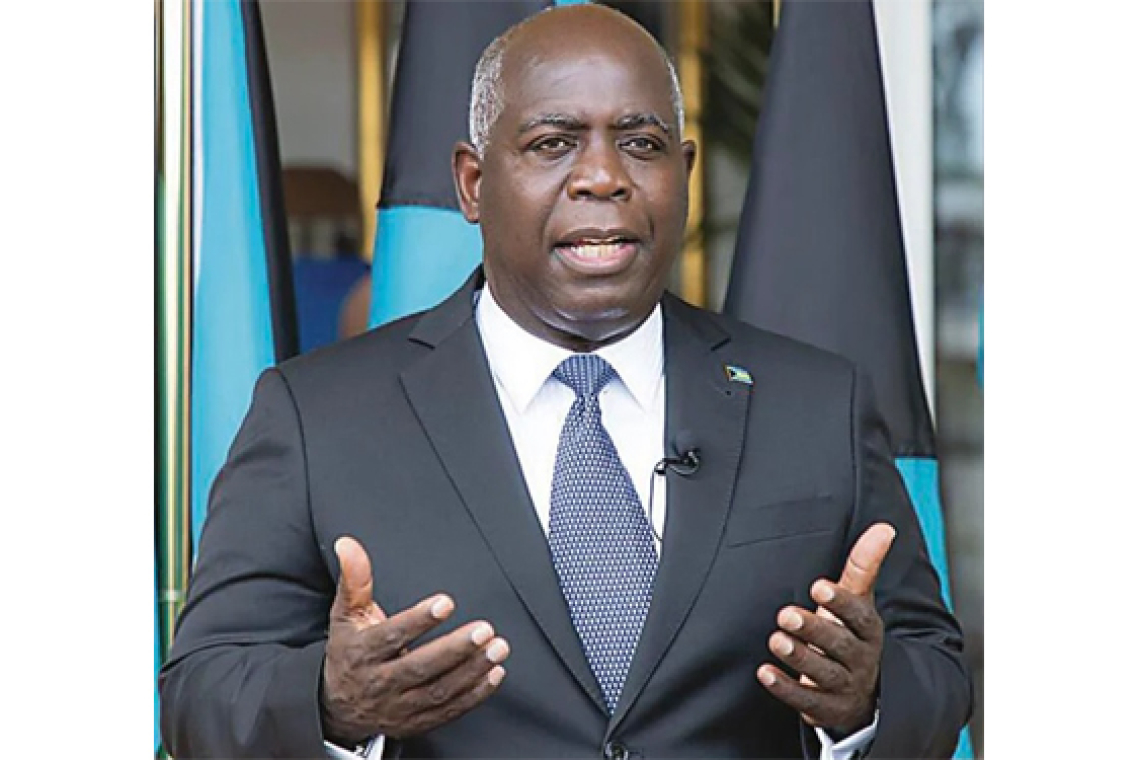Philip Davis
NASSAU, The Bahamas--The Bahamas has voted in support of a United Nations (UN) resolution that would shift decision-making on global tax policies and rules away from heavy handed global bodies like the European Union (EU), and the Organisation for Economic Cooperation and Development (OECD), to the intergovernmental organisation.
Earlier this month, 125 UN member nations voted in support of the United Nations Resolution on the Promotion of Inclusive and Effective International Tax Cooperation.
The United States (US), United Kingdom (UK) and all EU member countries were among the 48 that voted against the resolution. Nine nations abstained.
“The United Nations’ decision to endorse a more inclusive tax governance framework marks a profound advancement for global economic and tax policy – a cause The Bahamas has long championed,” the Office of the Prime Minister said.
“This development closely reflects our comprehensive report to the UN secretary-general, advocating for a fair tax system that embraces the diverse fiscal landscapes of all nations and particularly supports the economic realities of developing countries.”
Prime Minister (PM) Philip Davis, in a September 15 letter to UN Secretary General Antonio Guterres, highlighted the deleterious actions of the OECD and other global financial watch dogs – which frequently portray The Bahamas as a danger to the revenues of developed nations – as he gave his support to take decision-making power away from “a small club of rich countries” in the Global North.
“Most global initiatives in the current international tax system were designed to focus on the international financial centres of the Global South (i.e. Africa, Latin America, the Caribbean, Oceania, and parts of Asia), as well as profit-shifting strategies used by powerful digital technology companies,” he wrote.
“The Global South can be contrasted with the Global North, comprised of wealthy, industrialised countries. Poverty, inequality and political instability disproportionately affect the Global South. The Global South also tends to be more vulnerable to the effects of climate change, natural disasters, and other environmental challenges.
“The climate crisis is largely created by industrialised countries, many in the Global North. The effect of the climate crisis is felt disproportionately by small developing countries like The Bahamas. This is exacerbated by the arbitrary blacklisting of these same vulnerable countries such as The Bahamas by the very same countries that are responsible for the climate crisis.”
The shift away from the tax policies of the current global financial leaders has been a more than 50-year battle.
Advocacy group Tax Justice Network reported last week that in the weeks leading up to the historic vote, there was strong resistance from the OECD and some of its member nations, as the bloc reportedly attempted to “kill” the UN’s negotiating process.
The PM in his letter, though, said inequality is embedded in the multilateral tax architecture that exists today – a process he called “flawed, inequitable and unfair”.
“The EU’s unique tax haven blacklisting assessment process considers not only whether the OECD’s standards are satisfied, but also the EU’s code of conduct,” he stated.
“The EU views its code of conduct as being binding on all countries worldwide, not only its member states. This is not by consensus. In truth, the EU lacks the legal and ethical legitimacy to apply its code of conduct to any nation without that nation’s approval. However, the EU superimposes its authority on non-member countries through the backdoor of the non-inclusive OECD.
“Against this backdrop, countries like The Bahamas and those who make up the Global South are coerced to comply, by way of threat of punitive action from multiple international bodies and financial institutions, some of whom have no global standing.
“In addition, under the current OECD framework, a country is deemed to agree to a proposal where it fails to raise an objection. There is no requirement for an ‘opt-in’. Hence, a country that cannot stay abreast with the pace of measures and who does not have the chance to articulate an opinion, is taken as agreeing with the OECD proposal.
“Non-voting members have consistently taken issue with the lack of a formal voting process, and the need for more openness about decision making. Developing countries do not have voting rights within the OECD, and the OECD does not inherently represent their interests. We do not have ‘full participation in agenda setting and decision making’. The process is flawed, inequitable and unfair. The process needs to be remodelled.”
A statement from the Office of the Prime Minister on Sunday said The Bahamas’ commitment to maintaining the highest tax compliance standards is unwavering, adding that the country is fully prepared to engage with the UN to shape a tax system that ensures transparency, justice, and sustainable development.
“The United Nations is the appropriate body to design and build a truly equitable and inclusive international tax administration architecture, with equal-footed representation,” Davis stated.
“The OECD cannot declare legitimacy for developing ‘universal outputs’ while decision making and membership remain exclusive. We need a clean and balanced slate. The United Nations must now direct international tax policymaking, as it has customarily been a more inclusive body for developing countries concerning international taxation.”
This vote comes as the OECD seeks to impose a 15% global minimum corporate income tax by 2024, of which The Bahamas has agreed to implement. ~ The Nassau Guardian ~







